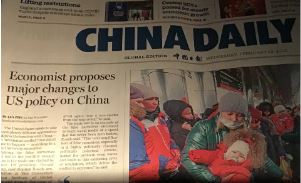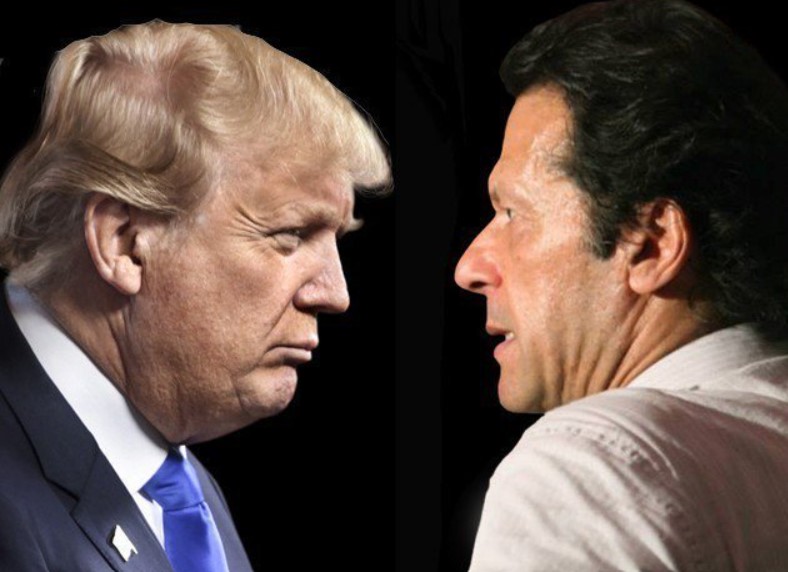|
Getting your Trinity Audio player ready...
|
Is it just me or does it look like everybody is getting overly opinionated nowadays? Everywhere I go, discussions are robust and quite heated. Everybody is part of multiple WhatsApp groups nowadays which has helped rekindle old friendships and has brought families together despite living many miles apart. It is supposed to be a good thing but then it looks like disagreements and negative sentiments are also flourishing. Recent political events in Pakistan with Imran Khan’s ouster created an uproar. People on both sides of the aisle are equally passionate about their causes. A lot of videos and memes are being forwarded. Insults are being hurled and sentiments are being hurt. Friends are fighting with each other and rifts are being created amongst family members. This is reminiscent of the time when the elections were in full swing in USA and people were similarly polarized either for or against Donald Trump.

The funny thing is that we know that social media platforms are controlling what we see day in and day out. We browse our Facebook or Instagram feeds and WhatsApp messages when we wake up or when we are waiting in line or for that matter, any otherwise unoccupied moment of our lives, we are being fed the narrative that we like to see. This also feeds us the hate towards the opposite narrative. Our thoughts and opinions are being shaped with our consent and we are being semi-brainwashed every passing moment. We know that it’s being done but still, we cannot do anything about it. It’s like being a heroin addict who knows that it is not good for him/her but still cannot stop, because that is what an addiction is, by definition. Such is the level of despair that I am writing an article about it but I don’t even have a proposed solution. What do we do? We all are trying to minimize the use of social media but then you get sucked into it again because of its upsides. We all are trying to go to reliable resources for information but really how often are we being fed information passively rather than pursuing it actively on our own.
A counterargument would be that the masses are being informed, educated, and made more politically aware by social media. It is actually good for society that more people are engaging in political discourse. The general public was not as aware of issues at hand prior to social media where your source for information was a paper newspaper in the morning and a thirty-minute news bulletin in the evening. But the problem is that the incessant flow of information now is being controlled and is highly polarizing and somewhat misleading.
A dear friend of mine, Asad Mohmand, MD from Dallas, TX recently wrote about this phenomenon very eloquently. Here I would like to share his words with you. This is actually the first “guest” article on my blog since its inception more than a year ago. Hope you enjoy it as much as I did.
Travel Thoughts
What if someone said to an embryo in the womb,
‘Outside of your world of black nothing
Is a miraculously ordered universe;
A vast Earth covered with tasty food;
Mountains, oceans and plains…..
The wonders of this world are beyond description.
What are you doing living in a dark prison?’
Jalaluddin Rumi – “The Universe (An Embryo in the Womb)”
(shopnilmahmud.com)
A fetus has no concept of the outside world. Its entire universe is a pool of amniotic fluid encapsulated by a seemingly impenetrable wall of flesh. Rumi, the Persian Sufi mystic, beautifully described this polarity in this dialogue between a fetus and a man on the outside. The fetus was not particularly impressed by the man’s claims and replied dismissively:
You are crazy. This is all a deluded fantasy.
One day you will look back and laugh at yourself.
You’ll say, ‘I can’t believe I was so asleep!
How did I ever forget the truth?’

One who has never stepped foot outside the confines of one’s geographic, religious or sociopolitical confines is not much different from an unborn child who has not yet experienced the world outside the womb. This ignorance of a world that exists outside of one’s own, had without a doubt been the catalyst for many, if not most of the tragedies mankind has lived through. War, slavery, ethnic cleansing, terrorism, domestic political violence are all rooted to some extent in either ignorance or intolerance of beliefs, ideas, and perspectives that one group of people display towards another. The Spanish Inquisition stemmed from sense of absolute righteousness with complete disregard for alternate belief systems. Terrorism in the name of religion would suffocate to non-existence if the perpetrators felt it was ok to believe in a different God or not believe in one at all. These are rather radical examples of the “belief bubble”. On a smaller scale, we see this ignorance play out in our everyday life. Political discussion turning ugly on a thanksgiving dinner. Fans turning violent during a soccer game. A US newspaper bashing China’s trade policy or Russia’s stance on Ukraine. In most of these instances, one party completely fails to study or appreciate the other party’s perspective.
Ignorance was justifiable in a time when peering outside of one’s own bubble was hindered by extremely limited exposure, opportunity or resources. The Internet brought hope that connectivity and accessibility will bridge many divides and bring people to a vantage point from where they can see things from a plurality of perspectives, particularly ones diametrically opposed to their own. The critic could walk a mile in the shoes of the criticized. The oppressor could see the world from the eyes of the oppressed. An American who had lived through the Cuban missile crisis could understand why Russians who lived through the Cold war would be intimidated by NATO’s Eastward expansion. A Holocaust survivor could understand how the plight of the Palestinians can be perceived an injustice. Sadly, we don’t see much of this at all. Yes, there are always voices of reason, but these often drown in the tsunami of polarization and extreme opinions that crowd the airwaves (including both mainstream and social media platforms).

How we got to this point is a discussion for another time. What made me want to write about it, was a copy of the “China Daily – Global Edition” I picked up at the airport on my way back to the US from a short trip overseas. The front-page article was titled “Economist proposes major change to US policy on China”. A Yale economist was quoted suggesting how an “accidental conflict” was unnecessarily and unwisely taken “to an extreme” by the Trump administration by its “fixation on addressing our trade deficit by going after one country”. The piece claimed that the US has a trade deficit with 106 countries which reflected “the lack of domestic savings, not the alleged unfair trading practices of one trading partner”. The economist cited Japan as an example and implied that such deficits cannot be resolved by going after the largest-deficit trading partner. He also suggested that the viral amplification of unverified, unchallenged narratives on social media (and I dare to say mainstream media as well) made the problem even worse and led to an “escalating cycle of retaliation”. One may or may not agree with this point of view, but what’s painfully clear, is that there is a near-total absence of voices of dissent and counter-arguments to the establishment’s narrative.
The paper had other articles discussing the recently concluded Beijing Winter Olympics, UK pandemic restrictions, Ukraine border crisis, shoplifting, and retail crimes in the US, to mention a few. As I read through, I started to appreciate how different the Chinese perspective was on major news items. Again, accordance is not an expectation, but understanding varying perspectives on any issue affecting our lives is critical. It transitions us through reactionary opposition, to tolerance, and ultimately – and hopefully – to acceptance of the existence and merits of different points of view. There are many paths leading to this goal. However, a simple way to start is to put aside our preconceived notions, challenge the media narratives on their merits, and try to get a better understanding of the opposing viewpoint. Two simple steps we can take are expanding our sphere of influence (read more, use different sources), and travel. When we meet our presumed adversaries and live a day in their skin, we realize we are not very different after all. Someone once said that there are three sides to every story – ours, theirs, and the truth. We must reach out of our comfort zones and strive to get as close to the truth as possible. After all the only way for an unborn child to acknowledge the outside world, is to be born into it.
May 24, 2022

